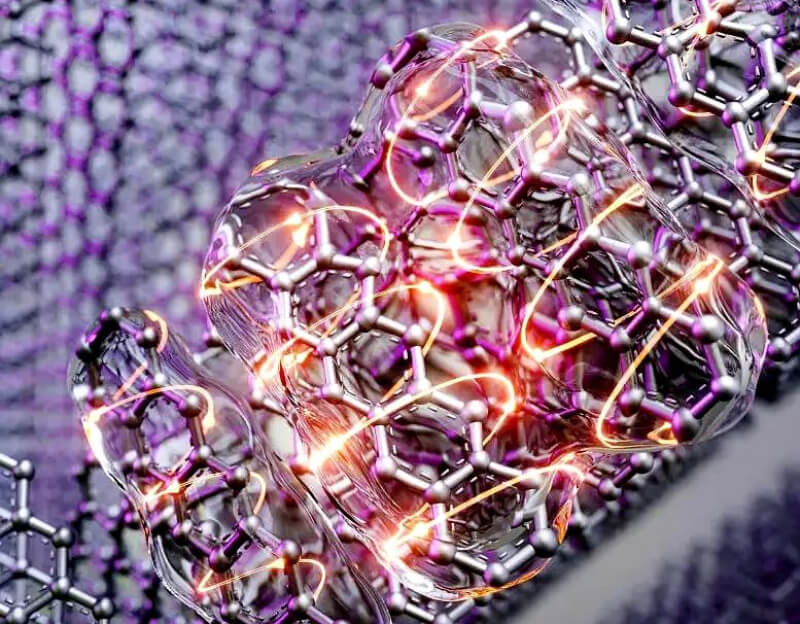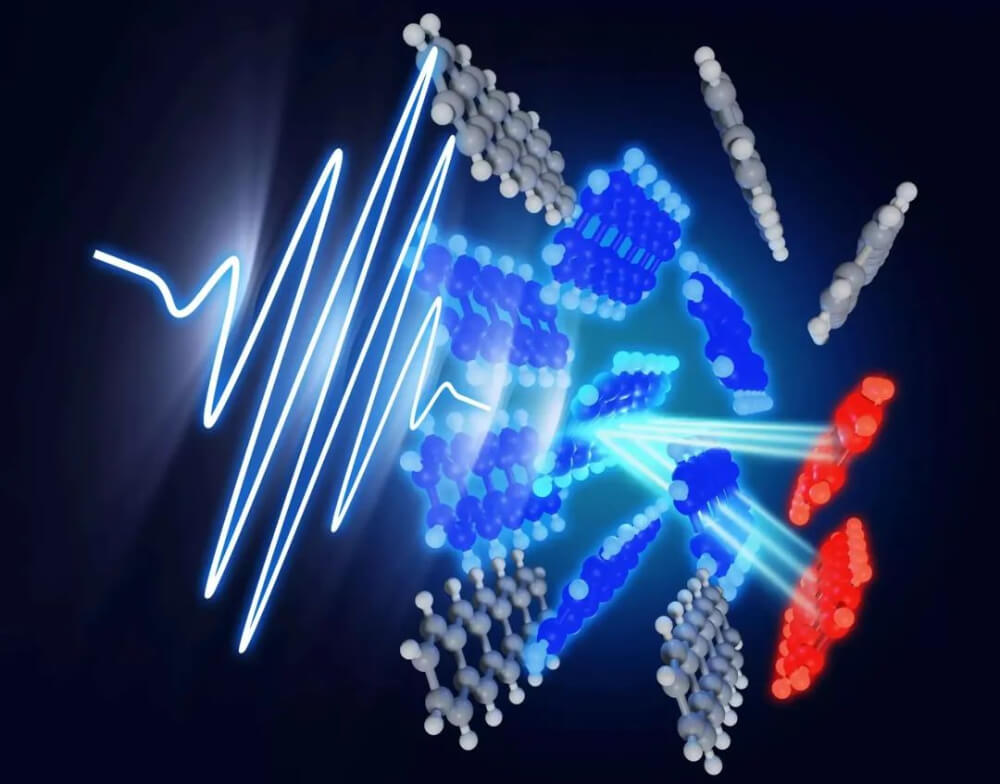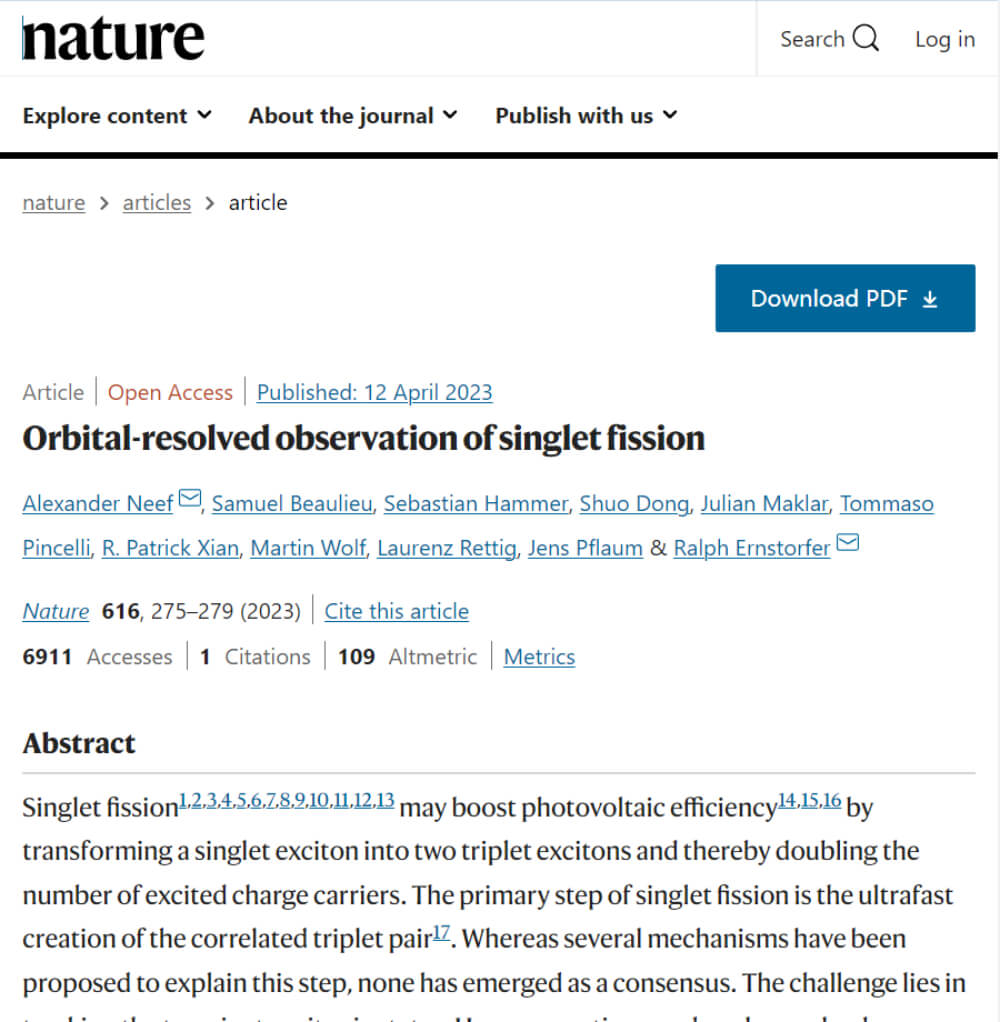Discovery of exciton fission mechanism may bring revolutionary changes in solar energy!
 namkoo solar
namkoo solar
A major German breakthrough? Discovery of exciton fission mechanism may bring revolutionary changes in solar energy!

As the Earth suffers deeper and more irreversible damage, solar energy, as a green and sustainable energy source, is receiving widespread attention and attention worldwide. How to improve the conversion efficiency of photovoltaic solar energy is a topic that researchers have been exploring.
Recently, a research team from the Fritz Haber Institute in Germany, the Technical University of Berlin and the University of Würzburg has made a major breakthrough by revealing the exciton fission mechanism of photons, a discovery that is expected to revolutionize the future development of photovoltaic solar energy.
Exciton fission refers to a phenomenon that occurs in a specific material (e.g., pentaphenyl) where a photon excites two electrons. For photovoltaic technology, this phenomenon has the potential to increase the photovoltaic conversion efficiency of solar cells. In conventional silicon solar cells, only one electron can be excited by one photon, so the ability to use the phenomenon of exciton fission to improve photovoltaic conversion efficiency would have a profound impact on the solar industry.

The research team has observed the dynamics of electron processes on femtosecond time scales by employing time- and angle-resolved photoelectron emission spectroscopy. This cutting-edge technique allowed the researchers to capture the first images of instantaneously excited electrons. By analyzing these images, the researchers revealed the exact mechanism of exciton fission: in pentaphenyl, a photon first excites an electron, and then this electron transfers energy to another electron.
Exciton fission has significant potential for applications in photovoltaic solar energy. The application of materials such as pentaphenyl with exciton fission properties to silicon solar cells may increase the photovoltaic conversion efficiency by about 1/3. This is significant for the trend of solar energy as a major source of energy in the future. In the future, a new generation of solar cells based on exciton fission mechanism is expected to gradually replace conventional silicon solar cells as the mainstream technology in the field of photovoltaic solar energy.
This important research result has been published in the top international academic journal "Nature", which has attracted widespread attention from the industry. The German research team's breakthrough discovery provides a valuable theoretical basis for continued innovation in solar energy technology, helping to promote the development of the global photovoltaic industry and achieve the widespread use of sustainable energy.
It is worth noting that although the discovery of the exciton fission mechanism is of great scientific value and practical significance, the research of its application to photovoltaic solar cells still faces a series of challenges. How to introduce materials with exciton fission properties such as pentaphenyl in silicon solar cells, how to improve the photoelectric conversion efficiency and how to reduce the cost, etc., still need to be further investigated by researchers.

In addition, exciton fission technology needs to consider environmental and economic factors in its practical application. For example, how to ensure the stability and reliability of materials such as pentaphenyl in large-scale production and commercial applications, and how to reduce production costs to make exciton fission-based solar cells competitive in the market.
Although the current application of exciton fission in photovoltaic solar energy still faces many challenges, the breakthrough discovery by the German research team opens up a whole new path for the future development of photovoltaic technology. With the scientists' in-depth research on the mechanism of exciton fission, we have reasons to believe that in the near future, exciton fission-based high-efficiency solar cells will gradually become a reality, providing strong support for solving the global energy crisis and environmental problems.



































